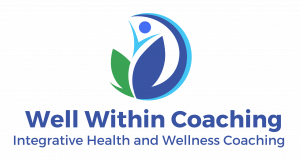8 Practical Tips for a Better Night’s Sleep
We all know how important quality sleep is for optimal mental, physical and emotional health.
If you’re not getting enough, you may notice the effects on your energy, mood, hunger, focus and productivity.
What you may not realize, at least not right away, is the impact on your immunity, stress level, heart health, weight, blood sugar regulation, brain health, and even appearance.
Inadequate sleep is a common concern around the world, including among the clients I work with. It can be extremely frustrating, never mind exhausting, to go through periods of sleeplessness. Typically, the worry about lack of sleep can keep you awake, perpetuating the cycle.
So rather than dwelling on the epidemic of insomnia, here are 9 tips to help you get a good night’s rest:
1) Get a minimum of 10 minutes of morning sunlight. Spending time outside in the early morning is one of the most effective ways to restore your circadian rhythm, and reset the sleep-wake cycle. Even on a cloudy day, there are enough lumens outside to make this a powerful strategy.
How to make it practical: Go for a short walk. Sit outside with your morning beverage. Walk the dog. Take breakfast away from your desk and eat outside. Start with just 10 minutes and gradually work your way up to 20. Leave the sunglasses inside; the light needs to come through your eyes to signal your brain to regulate your circadian rhythm.
2) Eliminate alcohol. Although evening may be a more typical time for those who drink to do so, alcohol can definitely interrupt sleep. This is due in part to how alcohol is metabolized, as well as the effect of alcohol on sleep cycles.
How to make it practical: If eliminating alcohol is not realistic for you, consider limiting your intake to one serving, consuming the drink with a meal, and not drinking within several hours of sleep. If alcohol consumption is interfering with other aspects of your health, mental health, relationships or wellbeing, consider working with a therapist, coach, group or healthcare practitioner who can support you.
3) Caffeinate mindfully. Did you know caffeine has a half-life of around 5-6 hours? This means it’s still in your system several hours after having your last cup, and likely well into the evening, especially if you take an afternoon coffee break.
How to make it practical: End your caffeine consumption, whether from coffee, soft drinks, energy drinks, or even chocolate, around 12:00 noon the latest. Aim for one serving. Since caffeine stimulates the nervous system, consider eliminating it if you experience anxiety, especially at night. If you need a lift as you’re transitioning, try a cup of green tea or coffee substitute made from chicory root, mushrooms, or dandelion.
4) Turn down the lights. You’re probably already using the blue light filter on your phone and computer, but it’s not just blue light that affects sleep. Similar to increased daylight in the morning, reduced LED light in the evening and a dark bedroom at night help signal your brain and body that it is time to rest.
How to make it practical: Most devices have a built-in ‘night-mode’ to automatically filter out blue light. If you have an older device, there are free apps you can download. Consider dimmer switches and transitioning from overhead lighting to task lighting. There are even bulbs in an amber or red hue that can support sleep if you are more sensitive to light.
5) Reduce stimulation: Whether from screens and other tech, evening work, or the news, excess stimulation can activate your nervous system. Our world can be a highly stimulating place. Most of the time we don’t even realize the impact of sensory overload on our mind-body system.
Make it practical: Stick to lighter themes on TV or in movies. Give yourself a hard stop when working. If you feel the need to get caught up on the day’s news, choose a media source that is less dramatic or a print source without disturbing images and sounds.
6) Move more. Is there anything movement doesn’t help address?!? Physical activity is one of those things we know we could do more, but often don’t. Notice how much more quickly and easily you fall asleep the more active you are.
How to make it practical: Start with 10 minutes before your day gets started. Do something you look forward to – or something you’re already doing. Take the kids to the park and actually play. Or stand in for the goalie or backstop as they practice their favorite sport. Try a family hike or bike ride. Mow the lawn. Dance to your favorite music. Browse YouTube for yoga online. Skip the late HIIT or boot camp class, as vigorous exercise too close to bedtime may interfere with sleep. Aim to get in your physical activity with plenty of time to wind down afterwards.
7) Try a few “sleep foods” and beverages. Several foods are conducive to sleep due to the amino acid tryptophan which in turn supports serotonin and melatonin. Although poultry and other lean meats may seem like an obvious choice, in general, eating a diverse whole-food plant-based diet offers key nutrients, including those essential for sleep.
How to make it practical: Add nuts and seeds such as pistachios, cashews, almonds, pumpkin seeds, and chia. Whole oats, cooked or overnight-style can be consumed any time of day. Sip on chamomile tea; if it’s too warm out for hot, try iced. Tart cherry juice has been shown in studies to positively impact sleep. Because even 100% tart cherry juice has a high amount of sugar, consume no more than 8 ounces, preferably with a meal. To avoid digesting while you are trying to sleep, complete your last meal at least 2 hours before bed, more if you are consuming animal protein and/or fat.
8) Implement a wind down routine. About an hour before you’d like to be asleep, start winding down. You can’t expect your mind and body to go from 60 to zero on a dime. Your system needs time to receive signals to power down.
How to make it practical: Engage in a relaxation practice. This may include meditation, yoga nidra, alternate nostril breathing, journaling, reading, gentle stretching, gratitude, prayer, or a bath or shower.
As with all lifestyle changes, consistency is key. For the best results, choose 1-2 strategies to start with and incorporate them into your regular routine.
Having trouble sleeping? If you’d like more personalized strategies and a plan to make them stick, reach out to schedule your free Clarity Call to learn more about how working with a coach can support you.
Disclaimer: This post is for informational purposes only. It does not constitute medical advice, or replace treatment or intervention by a qualified medical or mental health professional.





